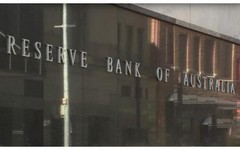Forex Trading Real-World Quick Start: A Guide to Getting Started from Scrap
Getting Started with Forex Trading Guide
In today's globalized financial markets, foreign exchange trading (forextrading), as a high-risk and high-return investment method, is becoming more and more popular among investors. For novices, it is essential to understand the basic concepts and operational processes. This article will help you get started quickly with a basic overview of the foreign exchange market, trading methods, account types, and risk management.

Understand the basic workings of the Forex market. Foreign exchange transactions are exchange transactions between currencies of different countries, such as the dollar against the euro, the yuan against the dollar, etc. In Forex trading, investors earn profits by buying and selling different currency pairs. Unlike stock trading, foreign exchange trading usually does not involve physical delivery, but is conducted through electronic trading platforms.
Learn the basic rules of Forex trading. In foreign exchange trading, investors need to choose their own trading methods, mainly standard crosses (standard cross) and minicrosses(mini cross). Standard crosses usually involve a large amount of capital and risk, while minicrosses are suitable for investors with limited capital. Investors also need to understand the types of forex accounts, including standard accounts, cross accounts and Rookie accounts, each of which has its own characteristics and risks.
Then, master the risk management of foreign exchange trading. Foreign exchange trading has high volatility and leverage, and investors need to reasonably control risk. Common risk management measures include setting stop-loss points, controlling positions, avoiding excessive leverage and reviewing trades regularly. Through scientific risk management, the possibility of loss can be effectively reduced.
Learn about common forex trading pitfalls. Many novices may overlook some key points when starting a trade, such as blindly following the trend, lack of strategy, and ignoring market analysis. Through learning and practice, you can avoid these misconceptions and better master the skills of foreign exchange trading.
Foreign Exchange Trading Practical Operation Skills
After mastering the basic concepts and risk management, the next step is the skills of the actual operation. As a novice, you may need to start practicing with a demo account to gain practical experience. A demo account can help you become familiar with the trading process, develop trading intuition, and avoid potential risks in actual trading.
In the real world, choosing the right account and leverage is key. Standard accounts are suitable for high-risk, high-return investors, while mini accounts are suitable for investors with limited funds. Choose a reasonable account type based on market conditions and your own risk tolerance.
Money management is a central aspect of trading. In foreign exchange trading, investors need to allocate funds reasonably and avoid over-investment. Develop a fund allocation plan based on your own fund budget and trading strategy to ensure that every fund is used wisely.
Risk management is a top priority in trading. By setting stop-loss points, controlling positions and avoiding excessive leverage, you can effectively control risk. When the market is volatile, stop loss in time can avoid greater losses.
Technical analysis is an important tool to help traders predict market movements. Learning basic technical indicators such as moving averages (MA), relative strength index (RSI) and MACD can help you better judge market trends. Technical analysis needs to be combined with other factors, such as market sentiment and fundamental analysis, to improve accuracy.
Cultivate good psychological quality and mentality management. Forex trading requires a high degree of concentration and discipline, and psychological endurance is also key. When the market is volatile, keep calm and avoid emotional trading in order to make steady profits from losses.
To sum up, Forex trading is an investment activity that requires patience, knowledge and skills. Through systematic learning and continuous practice, you can gradually master its core skills and realize investment returns. Remember, investment is risky and you need to be cautious when entering the market. I hope this article will help you get started quickly and achieve good results.

























